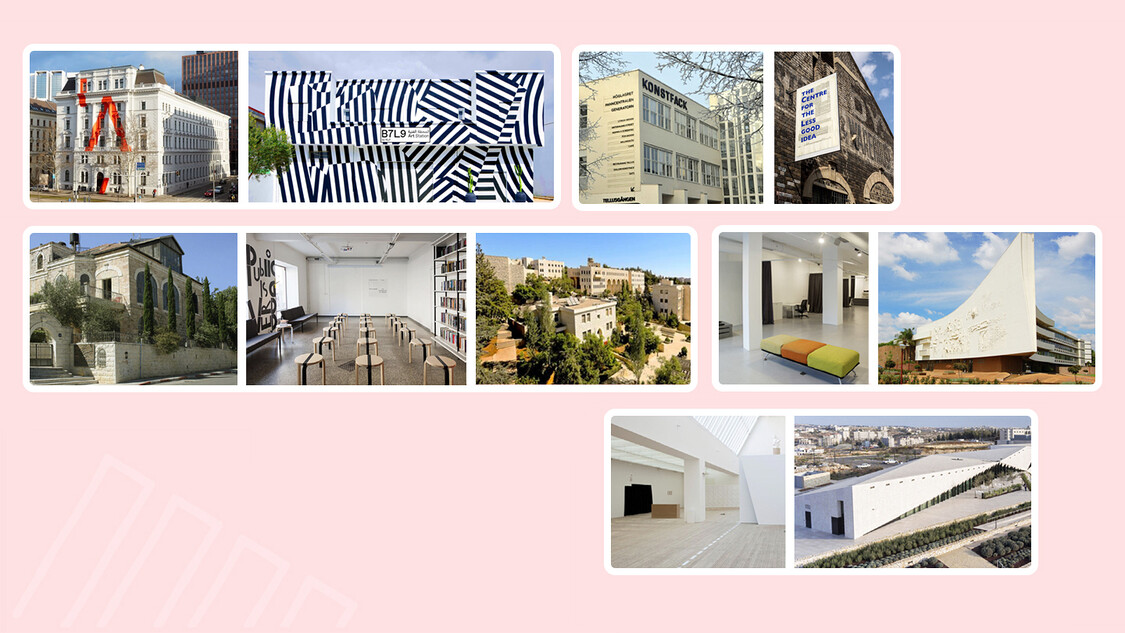Art & Education: Index collaborates in Octopus Programme 2021/22, selected artists announced

Announced via Art & Education the collaborative Octopus Programme – in which Index together with Konstfack is among the 11 international collaborating institutions – has selected ten artists for 2021/2022.
The Octopus Programme was initiated in 2019 by University of Applied Arts Vienna and Kamel Lazaar Foundation with a pilot phase linking Vienna and Tunis. The current phase will be defined collectively by University of Applied Arts Vienna; Kamel Lazaar Foundation, Tunis; Konstfack University of Arts, Crafts and Design, Stockholm; Index – The Swedish Contemporary Art Foundation; The University of Pretoria; The Centre for The Less Good Idea, Johannesburg; Birzeit University, the Palestinian Museum, Birzeit; Khalil Sakakini Cultural Center, Ramallah; SAHA Association, Istanbul; Publics, Helsinki; and Saastamoinen Foundation, Helsinki.
Through a unique partnership with 11 international institutions from seven countries, the Octopus Programme has selected ten outstanding artists to take part in the programme during the academic years 2021–22. From a rigorous, multi-institutional application process with five interconnected evaluation committees, the winning candidates’ research-based proposals were selected from a pool of applicants from Austria, Finland, Tunisia, Palestine, South Africa, Sweden and Turkey.
The participating artists selected and appointed to the programme are Alina Rentsch (Germany/Sweden), Bengü Karadumann (Turkey), Bochra Taboubi (Tunisia), Els van Houtert (The Netherlands/Austria), Jannis Neumann (Germany/Austria), Kim M. Reynolds (United States/South Africa), Maarit Mustonen (Finland), Nondumiso Lwazi Msimanga (South Africa), Noor Abed (Palestine), and Sofia Priftis (Sweden).
Octopus Programme is a guided, research-based educational programme which encourages artistic research and production-based collaborations between academies, art institutions, students and professionals and includes diverse presentation modes, processes of research and documentation taking form within and from different geographies. By merging the viewpoints of academic entities and contemporary art institutions and utilizing their facilities and activities, the programme aims to develop an autonomous and progressive educational methodology.
The programme intends to bridge and acknowledge social and cultural diversity in the targeted geographical regions—Europe, the Mediterranean, and Africa—and values the ambiguity between or among: socio-political realities and perspectives; interdisciplinary approaches; academic and non-academic intellectual models; forms of artistic research and practices; divergent perspectives on artistic production methodologies; individual and community-based approaches; top-down and grass-root organisation models; accessed and distributed resources and facilities; strategies of environmental sustainability; artistic challenges and opportunities; different funding possibilities; institutional and alternative curatorial practices; forms of engagement of artists, audiences and institutions; forms of innovative and technology-driven mindsets; and diverse knowledge production models.
The programme was designed as a two-semester course Spectral Encounters that includes seminars, peer-to-peer educational sessions, online and class discussions, research fieldtrips, collaborative production-based workshops, and lectures. The course also incorporates guest lecturers and curated presentations, exhibitions and activities. The course is led by Assoc. Prof. Dr. Basak Senova, Visiting Professor at Art and Communication Practices, the University of Applied Arts Vienna and its dynamic content and design are generated collaboratively with all the curators and partners involved: Lina Lazaar, Moez Brabet, and Karim Sultan (curator) in Tunis; Barbara Putz-Plecko and Basak Senova (curator) in Vienna; Maria Lantz, Magnus Bärtås, Marti Manen (curator) and Anne Klontz (curator) in Stockholm; William Kentridge, Phala Ookeditse Phala, and Bronwyn Lace (curator) in Johannesburg; Johan Thom in Pretoria; Tina Sherwell (curator), Sandy Rishmawi, Inas Yassin in Birzeit; Renad Shqeirat in Ramallah; Çelenk Bafra (curator) in Istanbul; Paul O’Neill (curator) and Marja Karttunen in Helsinki.
Read the announcement in Art & Education and find out more about the Octopus Programme at their website.
Announced in Art & Education today, Octopus Programme 2021/22 has selected its 10 artists. Index is one of the 11 participating institutions taking part in the collaborative programme, initiated in 2019/2020 by University of Applied Arts Vienna and Kamel Lazaar Foundation:
Through a unique partnership with 11 international institutions from seven countries, the Octopus Programme has selected ten outstanding artists to take part in the programme during the academic years 2021–22.
From a rigorous, multi-institutional application process with five interconnected evaluation committees, the winning candidates’ research-based proposals were selected from a pool of applicants from Austria, Finland, Tunisia, Palestine, South Africa, Sweden and Turkey.
The participating artists selected and appointed to the programme are Alina Rentsch (Germany/Sweden), Bengü Karadumann (Turkey), Bochra Taboubi (Tunisia), Els van Houtert (The Netherlands/Austria), Jannis Neumann (Germany/Austria), Kim M. Reynolds (United States/South Africa), Maarit Mustonen (Finland), Nondumiso Lwazi Msimanga (South Africa), Noor Abed (Palestine), and Sofia Priftis (Sweden).
Octopus Programme is a guided, research-based educational programme which encourages artistic research and production-based collaborations between academies, art institutions, students and professionals and includes diverse presentation modes, processes of research and documentation taking form within and from different geographies. By merging the viewpoints of academic entities and contemporary art institutions and utilizing their facilities and activities, the programme aims to develop an autonomous and progressive educational methodology.
See the announcement on Art & Education and read more about the Octopus Programme via their website.

